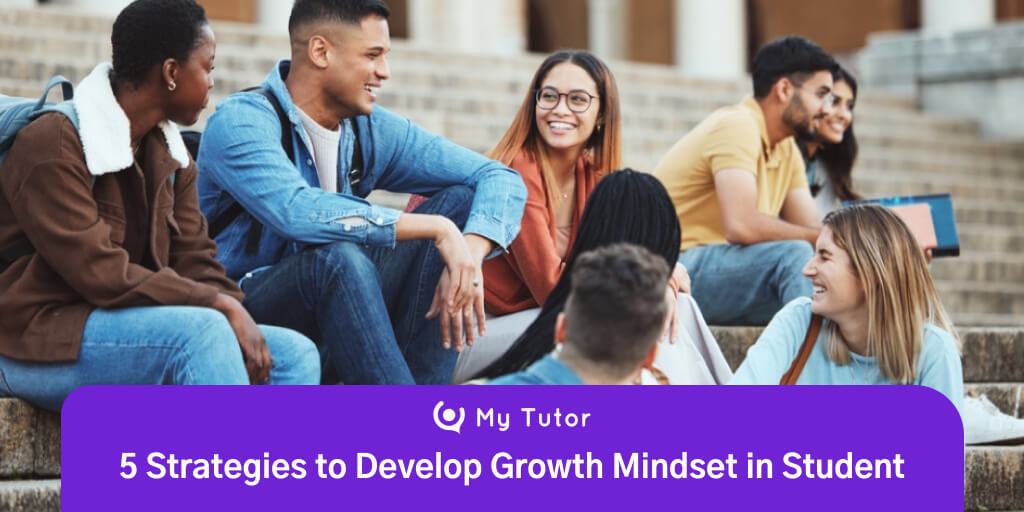Blog

5 Strategies to Develop Growth Mindset in Students
Are you looking for ways to help your students develop a growth mindset and reach their full potential? It’s a valuable skill to have and one that can support their success in both school and life. In this blog post, you’ll learn some practical tips on how to foster a growth mindset in your students. So continue reading for the best tips for developing a growth mindset in students.
Benefits of Developing a Growth Mindset in Students
Developing a growth mindset in students is important for their future success. A growth mindset helps students develop resilience, problem-solving skills, and increased confidence. It also prepares them to handle failure and encourages them to take risks and challenge themselves.
A student can improve his academic performance, social skills, and overall well-being by developing a growth mindset. Students with a growth mindset view challenges as opportunities for learning and growth rather than as insurmountable obstacles. This allows them to make mistakes without fear of failure or judgment from others, which can increase their ability to learn from those experiences. Growth mindsets also motivate students to endure obstacles and strive for excellence.
A growth mindset also helps students develop important social skills such as empathy and collaboration. Understanding how different mindsets affect how we interact with others can help students become more self-aware and better able to work with peers on projects. Additionally, having a growth mindset can help reduce negative self-talk, which can lead to feelings of inadequacy or low self-esteem. Instead, it encourages positive self-talk that recognizes personal strengths.
5 Strategies to Develop a Growth Mindset in Students
If an educator wants to develop a growth mindset for students, he or she needs to follow some simple but effective strategies.
1. Cultivating an Environment of Continuous Improvement

First, it’s important to create an environment where failure and mistakes are not seen as setbacks but as learning opportunities. This means reframing mistakes and allowing them to take risks without fear of failure or criticism. Additionally, the focus should be on praising effort rather than outcomes or intelligence. This helps students see their hard work as the key to success and encourages them to continue trying even when faced with difficulty.
2. Using Examples of Successful People

Real-world examples of successful people who achieved their goals through hard work and perseverance can also help students develop a growth mindset in the classroom. This will help students understand that success doesn’t necessarily come easily or quickly, but hard work, focus, and dedication together can help them achieve it over time. Showing them how others have worked hard on their own paths and worked through the challenges they faced can give them the motivation they need to keep going even when times get tough.
3. Emphasizing Repetitions

Emphasize the importance of practice and repetition in developing a skill or topic area. According to an article by the CPD Certification Service, studies have shown that the brain creates new neural connections when a task is repeated frequently, improving the performance of the skill. The article also states that repetition is most effective when spaced out over time; this technique is known as spaced repetition. Try repeating the information throughout the day at increasing intervals if you want to commit it to memory.
4. Setting Realistic Goals

Set realistic goals with your students and help them develop plans for achieving these goals. Be sure to encourage risk-taking and experimentation; this will help them become comfortable with failure and have the confidence necessary for growth and development.
5. Emphasizing on Problem-Solving Skills

For developing a growth mindset for students, they need to be taught how to overcome obstacles. Opportunities for development and further instruction that emphasizes problem-solving may be presented by a particularly challenging math problem or a challenging writing assignment that pushes their limits. Besides, students also need to learn that working together ab a team may solve problems. So, giving them problems to which they can find solutions by working together with their peers can help them learn the importance of cooperation and teamwork.
Conclusion
It is the responsibility of an educator to not only teach, but also shape the minds of the students. One way to do this is by developing a growth mindset in them. A growth mindset is a belief that intelligence and abilities can be developed through dedication and hard work.
My tutor is available on Android and iOS







